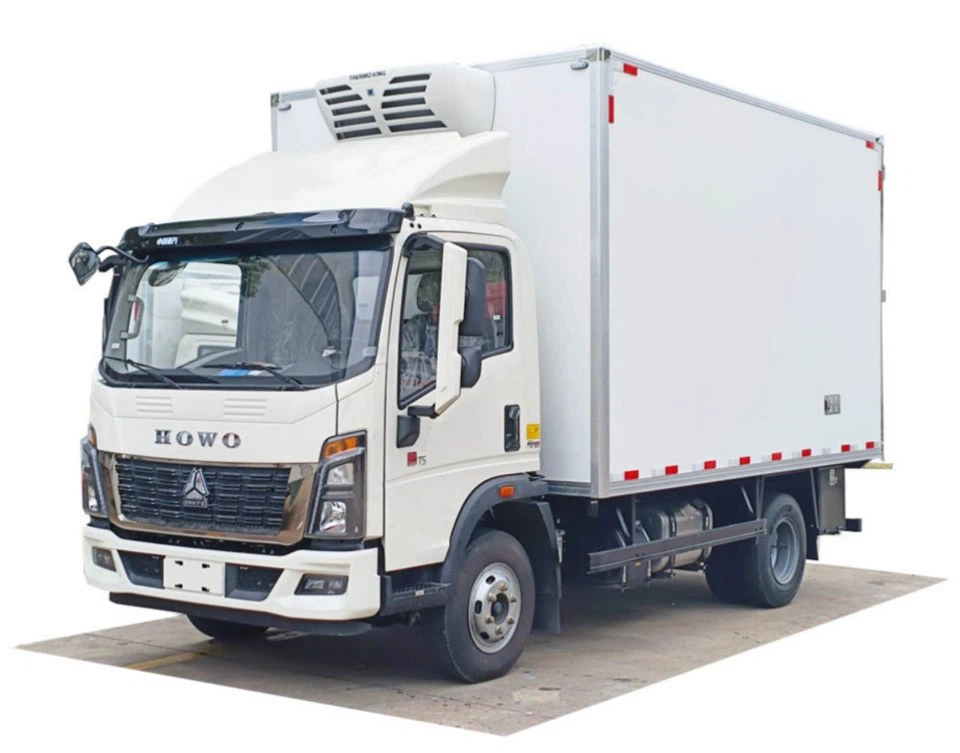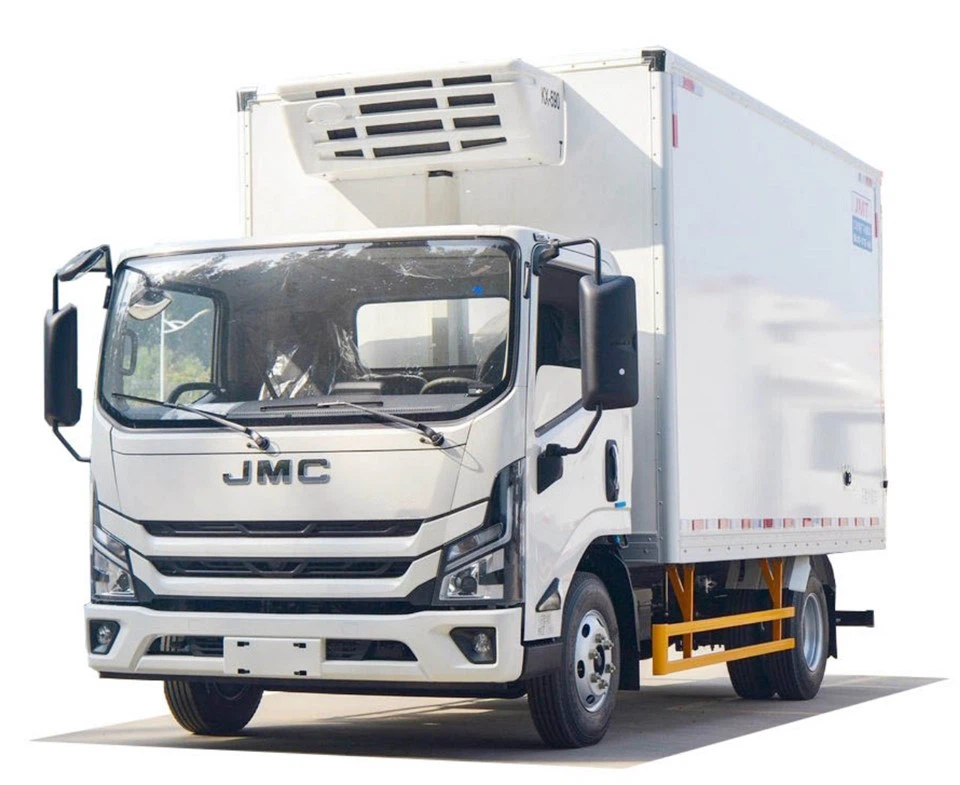Ultimate Guide to Buying a Used Hooklift Truck

Introduction
In the world of heavy-duty transport and waste management, the role of hooklift trucks cannot be overstated. These versatile machines allow for the easy loading and unloading of containers, making them indispensable for businesses in various sectors. If you’re considering adding a used hooklift truck to your fleet, this comprehensive guide will provide you with everything you need to know—from what to look for when purchasing, to tips on maintenance and efficiency. We’ll also explore the advantages of used hooklift trucks, financing options, and answer some frequently asked questions.
What is a Hooklift Truck?
A hooklift truck is a specialized vehicle designed to transport and unload containers using a hydraulic system operated by a hook mechanism. This allows the driver to load and unload the container without needing additional help, making it ideal for tasks such as waste collection, construction debris removal, and even transporting materials across job sites.
How Hooklift Trucks Work
At its core, a hooklift truck consists of a chassis, a hydraulic lifting system, and a hook mechanism. When the driver wants to load a container, they align the truck with it, lower the hook, and then use the hydraulic system to lift and secure the container. This process can be reversed for unloading, making it a highly efficient operation.
Benefits of Used Hooklift Trucks
Purchasing a used hooklift truck can provide significant advantages. Here are some notable benefits:
Cost Savings
Used hooklift trucks typically come at a lower price point than new models, making it easier for businesses with limited budgets to acquire the equipment they need.

Immediate Availability
The used market often has a wide array of options ready for immediate purchase. This means you can get your truck on the road faster compared to waiting for a custom-built new truck.
Depreciation Benefits
Buying used means you avoid the steep depreciation hit that new vehicles incur. This can be a smart financial move in the long run.
Things to Consider Before Buying a Used Hooklift Truck
When buying a used hooklift truck, several critical factors should influence your decision:
Condition of the Truck
Check for any signs of wear and tear. Inspect the chassis, the hydraulic system, and the overall functionality of the hook mechanism. A simple visual inspection may not be enough; it’s wise to take a mechanic along to point out potential issues.
History and Maintenance Records
Request service records to understand how well the truck has been maintained. A well-documented history can provide insights into the vehicle’s reliability and past issues.
Load Capacity
Assess your typical load requirements and ensure the truck can handle the necessary capacity. Different hooklift trucks come in various sizes, so finding the right fit for your needs is essential.
Brand Reliability
Some brands are known for their durability and reliability. Research which manufacturers are highly regarded in the industry to make an informed decision.
Where to Buy a Used Hooklift Truck

There are several options available for purchasing a used hooklift truck:
Dealerships
Many dealerships specialize in commercial vehicles and often have a selection of used hooklift trucks. They may provide warranties and financing options, adding an extra layer of security to your purchase.
Online Marketplaces
Websites like eBay, Craigslist, and specialized heavy equipment sites often have listings for used hooklift trucks. Make sure to research seller reputations and inquire deeply about the condition of the truck before making a purchase.
Auction Sites
Online auctions can offer significant savings, but they also come with risks. Ensure you know the maximum you are willing to pay and be cautious about bidding on trucks without the chance to inspect them first.
Financing Options for Used Hooklift Trucks
Financing is a crucial aspect of purchasing heavy machinery. Here are some common options:
Conventional Bank Loans
Many banks offer loans specifically for purchasing vehicles. These often come with competitive interest rates depending on your credit score and business financials.
Equipment Financing Companies
Specialized financing companies offer loans solely for equipment purchases, which can be appealing if you don’t have a strong relationship with a bank. They might also have more flexible terms.
Leasing Options
Leasing may be a viable alternative, allowing you to pay a monthly fee without owning the truck outright. At the end of the lease period, you may have the option to purchase the truck at a predetermined price.
Maintenance Tips for Your Used Hooklift Truck
Keeping your hooklift truck in excellent condition enhances longevity and performance. Here are some maintenance tips:
Regular Inspections
Conduct routine checks on critical components such as the hydraulic system and tires. Early detection of issues can save you from costly repairs later.
Fluid Levels
Regularly check and replace hydraulic fluid, engine oil, and coolant as needed. Keeping fluid levels correct can prevent overheating and mechanical failures.
Brake and Tire Maintenance
Maintain brake systems and inspect tires for wear. Ensuring safety equipment is in good condition is essential both for legal compliance and operational safety.
Efficiency and Best Practices for Using Hooklift Trucks
Adopting best practices can significantly enhance the efficiency of your hooklift truck operations:
Driver Training

Providing proper training for drivers is crucial. They should understand how to operate the hooklift mechanism correctly and perform pre-operation checks to ensure safety.
Optimize Route Planning
Plan routes that minimize travel distances and avoid congested areas. Saving on fuel and time can boost your operational efficiency.
Load Management
Know the limits of your hooklift truck. Overloading can cause mechanical stress and put drivers at risk.
What to Expect After Your Purchase
Once you have purchased your used hooklift truck, here are some important steps to follow:
Registration and Compliance
Ensure that the truck is registered according to local laws, and check whether it meets any specific safety regulations for your industry.
Insurance Considerations
It’s crucial to obtain the right insurance cover for your hooklift truck. Consult with an insurance agent to find the best policy that fits your needs.
Setting Up Maintenance Protocols
Establish a regular maintenance schedule to keep the truck in top condition, reducing downtime and repair costs.
Frequently Asked Questions (FAQs)
1. What should I look for when buying a used hooklift truck?
Inspect the truck’s overall condition, check maintenance records, evaluate its load capacity, and consider reputable brands known for reliability.
2. Are used hooklift trucks a good investment?
Yes, they often offer significant cost savings compared to new models and avoid the steep depreciation associated with new vehicles.
3. How do I maintain a used hooklift truck?
Regular inspections, fluid level checks, brake, and tire maintenance are essential for keeping your hooklift truck in good working order.
4. Where can I find used hooklift trucks for sale?
You can check dealerships, online marketplaces, and auction sites for used hooklift truck listings.
5. What are the financing options available for used hooklift trucks?
Common financing options include conventional bank loans, equipment financing companies, and leasing options.
6. How can I enhance the efficiency of my hooklift truck operations?
Invest in driver training, optimize route planning, and manage loads properly to enhance operational efficiency.
